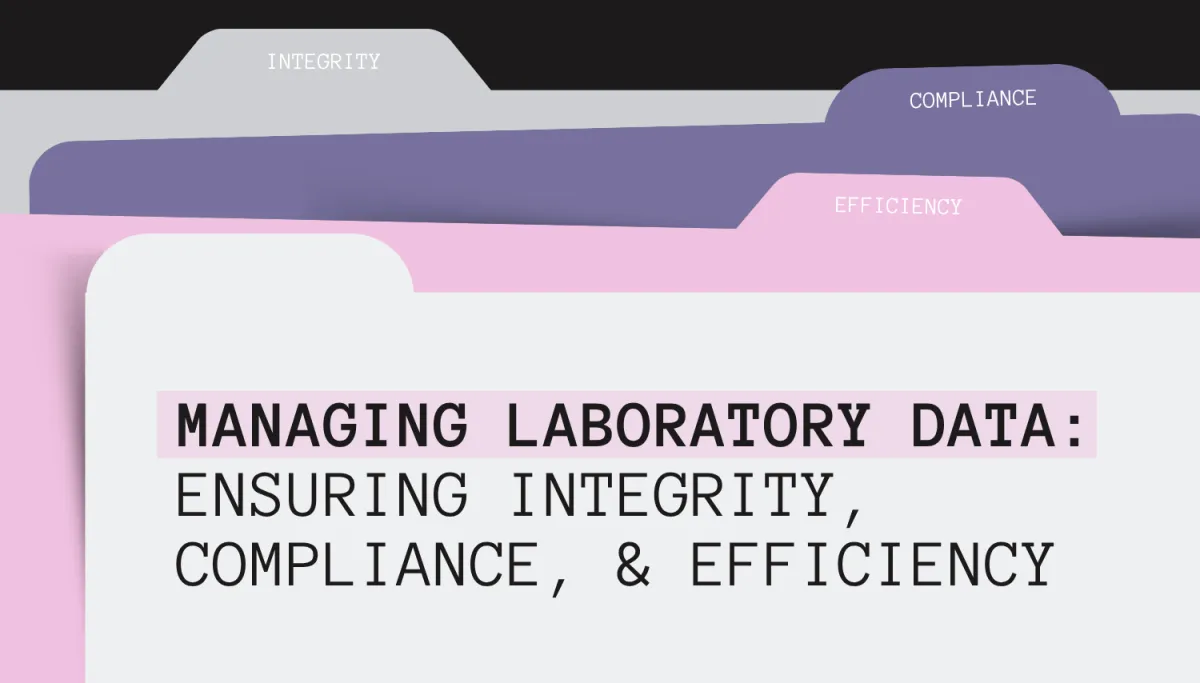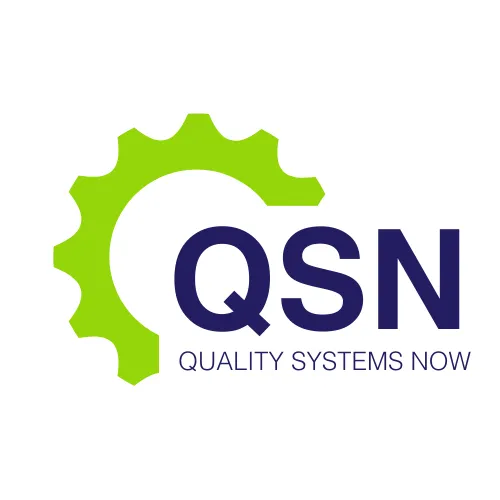LATEST NEWS

Managing Laboratory Data: Ensuring Integrity, Compliance, and Efficiency
Laboratory data underpins critical quality decisions. From raw material release and in-process checks to final product testing, the accuracy and reliability of laboratory data determine whether a product is safe and effective—and whether it can be legally released to market. At Quality Systems Now, we work with manufacturers, contract testing laboratories, and biotechnology companies across Australia to ensure their laboratory data management processes meet rigorous regulatory expectations.
With increasing reliance on electronic systems, automation, and interconnected devices, laboratory data handling has become more complex—but also more susceptible to integrity risks. Regulatory authorities such as the Therapeutic Goods Administration (TGA) and global partners like the FDA and EMA now place strong emphasis on data governance. This article explores the essential requirements for managing laboratory data in regulated environments, common pitfalls, and strategies to ensure compliance, efficiency, and scientific robustness.
Regulatory Expectations for Laboratory Data
The management of laboratory data is governed by a suite of regulations and guidance documents, including:
PIC/S Guide to GMP (PE009-17), particularly Chapters 4 and 6
TGA Laboratory Testing Guidance and inspection practices
ALCOA+ Principles for data integrity
WHO and MHRA guidance on Good Data and Record Management Practices
These sources emphasise that all data—whether electronic or paper-based—must be complete, consistent, enduring, and retrievable. Regulators expect laboratory data to be properly recorded, stored, reviewed, and protected from unauthorised alteration or loss.
What Constitutes Laboratory Data?
Laboratory data includes all records associated with:
Raw data from instruments (e.g., chromatograms, spectrophotometer outputs)
Analytical results and calculations
Metadata (e.g., audit trails, system access logs)
Method validation records
Laboratory notebooks or worksheets
Electronic Laboratory Information Management Systems (LIMS) records
Calibration and equipment qualification results
Out-of-specification (OOS) and deviation reports
A common misconception is that only final test results are considered data. In reality, all raw and intermediate data, including system-generated files and temporary records, must be included in the laboratory’s data governance framework.
The Role of ALCOA+ in Data Management
The ALCOA+ principles—Attributable, Legible, Contemporaneous, Original, Accurate, Complete, Consistent, Enduring, and Available—are the foundation of laboratory data integrity. Each principle plays a distinct role:
Attributable: Data must be traceable to the individual who performed the activity.
Contemporaneous: Results must be recorded at the time the task is performed.
Original: Source data must be preserved; transcribed summaries are not sufficient.
Accurate: All entries and results must be correct, verified, and reviewed.
Consistent: Time stamps, record formats, and data chronology must align.
Enduring and Available: Records must be maintained in a secure, retrievable format for the required retention period.
Violations of these principles are increasingly cited during GMP inspections, especially in laboratories using hybrid (paper-electronic) systems without adequate procedural controls.
Common Challenges in Laboratory Data Handling
At Quality Systems Now, we observe several recurring challenges in data handling practices that can pose compliance risks:
1. Inadequate System Controls
Laboratories often use sophisticated instruments with connected software that generates and stores electronic data. However, if user roles, access privileges, and audit trails are not correctly configured, the data may be vulnerable to manipulation or loss.
2. Hybrid Systems and Unofficial Records
Use of temporary notes, worksheets, or local spreadsheets before transferring results into LIMS or quality systems is risky. These unofficial records can create gaps in traceability and are often overlooked in data reviews or audits.
3. Poorly Defined Data Review Processes
Review of laboratory data must include raw data, metadata, and audit trails, not just summary results. Laboratories that do not train their analysts and reviewers on these expectations may miss critical errors or integrity issues.
4. Lack of Version Control and Change Management
Analytical methods, software, and instrument configurations must be version-controlled. Failure to maintain proper change records can compromise data reproducibility and method validation.
5. Incomplete Validation of Electronic Systems
LIMS, CDS (Chromatography Data Systems), and standalone software must be validated to demonstrate they consistently function as intended. Inadequate validation leads to data integrity gaps and regulatory citations.
Best Practices for Robust Laboratory Data Management
To manage laboratory data effectively and meet GMP requirements, organisations should implement the following strategies:
1. Establish a Data Governance Policy
A documented policy defining the expectations for laboratory data integrity, roles, responsibilities, and training should be implemented. This policy should apply to all staff involved in data generation, review, and approval.
2. Validate and Qualify Electronic Systems
All electronic systems used for recording or processing data must undergo Computer System Validation (CSV) or qualification appropriate to their GxP impact. Validation documentation should include:
User requirements
Risk assessments
Test scripts (IQ/OQ/PQ)
Audit trail testing
Backup and recovery processes
3. Implement Role-Based Access Controls
Systems must have clearly defined user roles that restrict access based on function. Administrative privileges should be limited, and audit trails must be activated and regularly reviewed.
4. Train Staff on Data Integrity Expectations
Staff must understand what constitutes raw data, how to maintain ALCOA+ principles, and how to identify red flags such as overwritten files, unusual access patterns, or inconsistent time stamps.
At Quality Systems Now, we provide custom training programs that reinforce data integrity as a daily practice, not just an audit requirement.
5. Conduct Routine Data Reviews and Audits
Routine reviews of laboratory records, including audit trails and change logs, should be embedded into quality processes. Periodic internal audits focused specifically on data integrity help identify and rectify noncompliance early.
6. Harmonise SOPs Across Laboratory Functions
Standard Operating Procedures (SOPs) must clearly define:
How and when to record data
How calculations are checked
How corrections are made (and justified)
How electronic data is backed up and restored
How changes to methods and systems are documented
Harmonising SOPs ensures consistent data practices across shifts, analysts, and departments.
7. Ensure Backup, Archiving, and Retrieval
Data must be stored in secure formats, with regular backups and defined archiving strategies. Retrieval systems should be tested periodically to ensure that data can be accessed promptly during audits, recalls, or investigations.
Future Directions: Automation and Data Analytics
As laboratories move toward digitalisation, the role of automation, AI, and data analytics is growing. Automated data capture from instruments, real-time quality dashboards, and predictive analytics can improve data quality and reduce manual errors. However, these advancements must still comply with GMP and data integrity principles.
At Quality Systems Now, we support laboratories in transitioning to compliant digital systems, ensuring that automation enhances—not undermines—data quality and traceability.
Get in Touch Now for a Free Consultation
The proper handling of laboratory data is not just a technical requirement; it is a scientific, regulatory, and ethical imperative. Accurate and trustworthy data ensures that quality decisions are valid, regulatory approvals are maintained, and patients are protected.
By implementing sound data governance, validating electronic systems, training staff, and continuously reviewing practices, laboratories can strengthen their compliance posture and operational performance.
At Quality Systems Now, we specialise in helping Australian therapeutic goods manufacturers and laboratories build and maintain robust data management systems. Contact us to learn how we can support your laboratory in navigating data integrity challenges and excelling in compliance.
